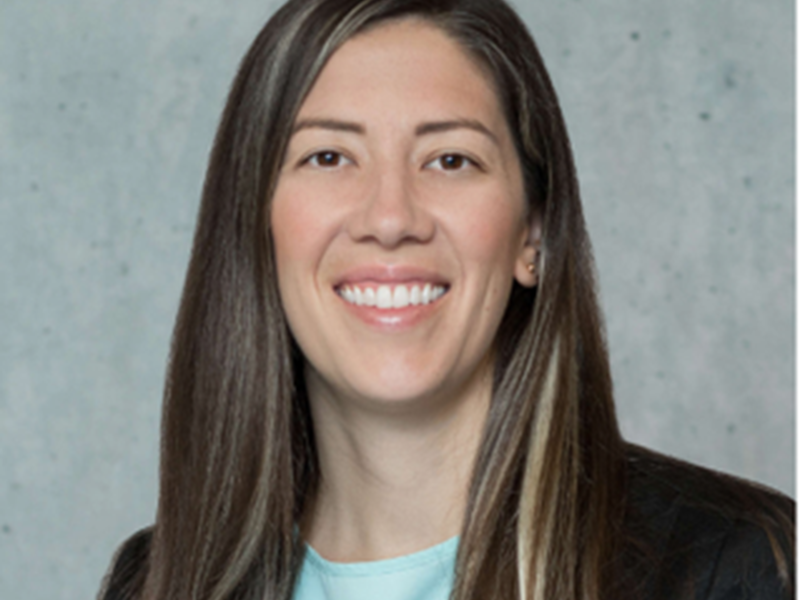
Well into her career, Emily Eldridge decided to go back to school and get her MBA. Her son was 5 years old, and her daughter only 2. Although the executive MBA program at the University of Michigan was tough, requiring a family “juggling act” of evening and weekend classes, she says “the outcome was so worth it.”
The best part, Eldridge says — the confidence boost — was having the opportunity to work on a project in an industry she was not familiar with. She was able to offer “strategic direction, because the learnings I had in the auto industry were transferrable,” she says. “It was such a great feeling to know that I wasn’t siloed — that the skills and knowledge I had learned, while they might look disjointed, have all come together in the person I am today.”
Eldridge’s skills and knowledge have been accumulated during a career that started in retail and moved into the auto industry. She is currently senior director, messaging for FordDirect, the joint venture between Ford Motor Co. and its dealers. FordDirect provides tools and services to help dealers in the digital space — including digital retailing, websites, social media, customer relationship management and consumer communications.
Growing up in Michigan, Eldridge says, “So many friends of mine, their parents and families, worked in the auto industry. I remember driving past those big, impressive headquarters buildings, I had a desire to work in what seemed to be such an interesting and glamorous industry.”
But after getting an undergraduate degree from Michigan State University, Eldridge worked in music and home goods retailing. She found she loved the areas of distribution and supply chain management, in particular what she calls “consultative selling”: forming relationships with distribution partners and customers. That attracted her to FordDirect, where she works closely with dealerships in a role similar to a consultant.
She also is co-chair of the FordDirect chapter of Women of Ford. “We are focused on education and awareness. A key initiative right now is using men as advocates. We think it’s one of the most important strategies we need to employ in this moment,” she says. “If someone is not represented at the table, it’s important to have a man ask to bring that voice to the table.”
Although Eldridge says, “It takes a lot of gumption to be someone pursuing a career that has not been overly welcoming to your gender,” she says when she moved into the auto industry, being a woman wasn’t the biggest issue. “I was pleasantly surprised by the number of women I interact with, in leadership positions at FordDirect and among Ford’s field teams. But working with dealers in particular, I found that the biggest barrier was that I hadn’t grown up in the industry,” she says. “I had something to prove to them and had to work extra hard and study their business before I walked in the door.”
Her career path has taught her the importance of being flexible. “Find your spark, and know that it might change over time,” she says. But at the same time, her favorite adage is “A goal without a plan is just a wish. I have set finite, deliverable goals for myself, and I hold myself accountable.”
She is a strong advocate of networking and supporting other women. “I know some women who struggle with that,” she says. “They think they need to overcompensate by being cruel, not being personal.”
One silver lining in the pandemic, she says, is that people have become more aware of and sympathetic to the personal lives of co-workers and colleagues. “So many times, people wouldn’t think to ask about your personal life if you’re working in the office. But with us being at home, it’s forced us in many ways to see the whole person — not just what they bring to the office, and not just the part they want you to perceive,” she says. “That’s been important for women, I think, because we tend to hold back. As awful as the pandemic has been, in some ways it’s allowed us to be who we are.”

